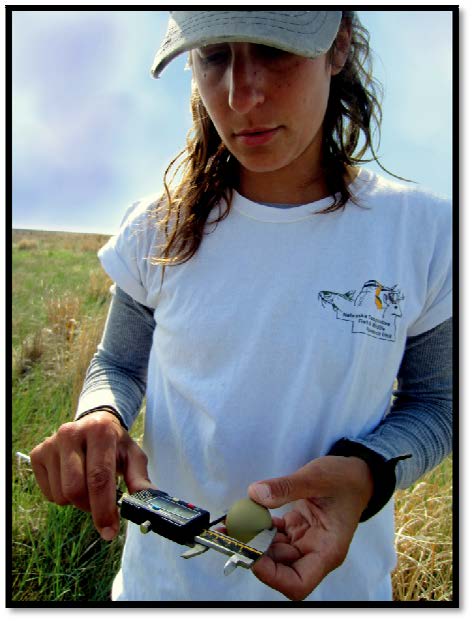
Jessica Laskowski, graduate student, will defend her thesis, "Fear and the Phantoms of Predators Past," at 9 a.m.,
April 9 in 901 Hardin Hall.
Abstract:
Predator-prey interactions elicit shifts in prey behavior, physiology and life-history that can impact prey population dynamics and community structure to the same extent as prey consumption. An emerging body of literature addressing the ‘landscape of fear’ shows substantial immediate impacts of fear on prey hormone concentrations, body condition, behavior and reproductive investment. However, predation risk is temporally variable, and although seasonal increases in prey mortality carry-over to constrain prey abundance after predators have moved on, it remains unknown how long, and to what extent the effects of fear carry-over to impact prey populations.
We assessed the temporal carry-over effects of human hunting on reproduction in female ring-necked pheasants (Phasianus colchicus). Because harvest is limited to males, but both sexes experience similar cues indicative of risk, we were able to isolate the effects of fear from the selective effects of predation. We found that although hunting did not have prolonged effects on female survival, body condition or nest site selection, females on heavily hunted sites had elevated baseline corticosterone concentrations that were more sensitive to body condition such that birds in poor condition had disproportionately higher corticosterone concentrations on high risk sites.
Furthermore, hunter activity caused females to produce 10% smaller eggs. Our results indicate that fear alone can carry-over to impact prey physiology and reproductive investment after cues indicative of risk are gone, and that fear associated with episodes of heightened predation risk can have prolonged impacts on prey populations even in relatively safe environments.